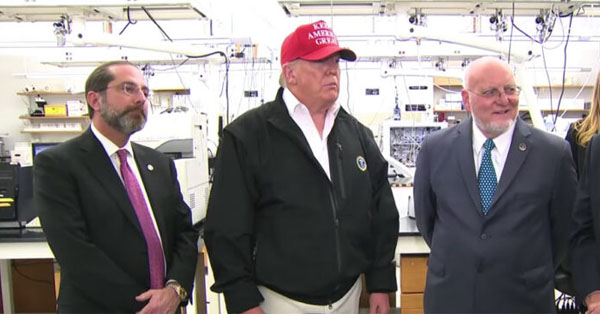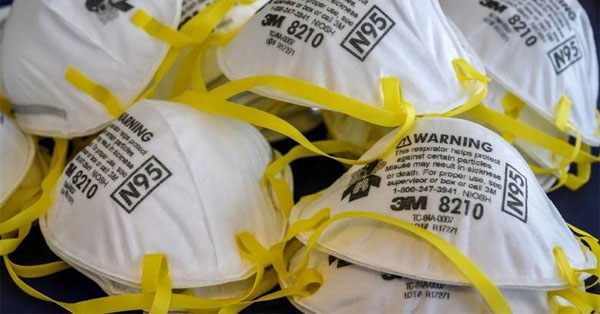OPINION
CDC continues to choose politics over science, worker safety
The agency is ignoring evidence of airborne transmission of the coronavirus as the AFL-CIO continues to demand respirators and stronger protective equipment for high-risk workers.
By REBECCA L. REINDEL and MK FLETCHER
WASHINGTON, D.C. (Sept. 23, 2020) — On Friday, the Centers for Disease Control and Prevention (CDC) finally acknowledged airborne transmission of SARS-CoV-2, the virus responsible for the COVID-19 disease. But this long awaited recognition was promptly retracted from its website Monday morning with the message, “Posted in error.”
The initial, quiet posting on Friday was not an error; they were facts, based on evidence that reflects our current state of knowledge and supported by scientists and occupational safety and health professionals throughout the world. Early in the pandemic, evidence suggested SARS-CoV-2 spread distances through the air, and the current science is now overwhelming.

In basic terms, “airborne” transmission means that small virus particles we emit when we cough, speak or breathe can travel distances through the air, linger in the air and make others sick, compared to person-to-person contact and “droplet” transmission, which refers to the large, heavy particles that fall down after they are exhaled. Airborne viruses can spread rapidly throughout groups and are much more contagious than those limited to droplet transmission. Environments that put workers at greater risk of airborne viruses include:
● Indoor environments.
● Poorly ventilated spaces.
● Crowded conditions.
● Settings with individuals known to be infected (e.g., health care).
Viruses like the one causing COVID-19 can be transmitted through contact, droplet and airborne routes, which have very important implications for protecting workers on the job. Cleaning measures are useful to protect against “contact” and some simple personal protective equipment like face shields and gowns are useful to protect against “droplet” splashes, but the airborne aspect requires stronger workplace protections, including:
● Reducing the number of people in a setting.
● Spacing people far apart.
● Reducing the time that people spend in the same spaces.
● Ensuring adequate ventilation.
● Reorganizing the workplace, break times and schedules.
● Using certified respirators that filter small aerosolized particles for workers in high-risk settings.
In addition to elements that are critical for workers no matter the transmission:
● Early identification and reporting to local health authorities of COVID-19 cases in the workplace.
● Notification of COVID-19 cases to employees and non-punitive leave protections.
● Adequate training programs.

The CDC is ignoring airborne transmission because they don’t want to admit there is evidence that:
1. Soundly supports strong, comprehensive and enforceable safety protections that go beyond sanitation recommendations, generic masks and the “six-foot rule.”
2. Soundly supports the critical need for certified respiratory protection that filters out small, aerosolized particles for many high-risk workers.
The labor movement has been advocating for these strong workplace safety protections throughout the COVID-19 pandemic. We will continue calling on the Donald Trump administration to issue a strong, comprehensive OSHA emergency temporary standard for COVID-19 to require and enforce those safety protections, and to use the Defense Production Act to produce more certified respirators needed to protect workers in high-risk settings since there is a continuing shortage. The Trump administration’s CDC has once again let working people down, caving to Big Business pressure instead of issuing clear information on transmission that would save lives and improve livelihoods. More than six months into the pandemic, workers still do not have the protections we need and the Trump administration is still playing political games with workers’ lives.
Rebecca L. Reindel is the director of occupational safety and health for the AFL-CIO. Mary Kathryn (MK) Fletcher is a safety and health specialist for the AFL-CIO. This column was originally posted at the AFL-CIO Now blog.





